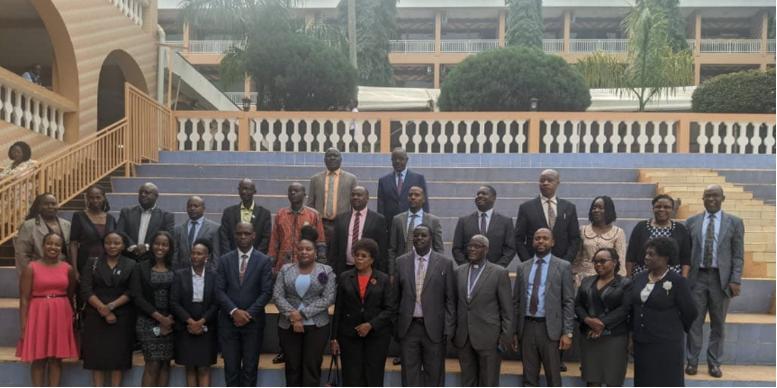Africa-Press – Uganda. Government will begin vetting officers nominated to serve on anti-corruption agency committees, as part of a new five-year strategy aimed at tightening the fight against graft.
The recommendation is part of a draft national anti-corruption strategy being developed by the Inter-Agency Forum under the chairmanship of the Directorate for Ethics and Integrity (DEI), Office of the President.
Joel Wanjala, Under Secretary at the DEI, said the move is intended to ensure that those appointed to combat corruption are themselves free of ethical blemishes.
“One of the recommendations in the national anti-corruption strategy is to have officers working in anti-corruption agencies vetted,” Wanjala said at a public dialogue on innovations in complaints handling and the role of the Leadership Code in the anti-graft fight.
“When you are fighting corruption, you must be vetted — just like it is done in the security agencies,” he added.
The Leadership Code Act requires senior public officials to declare their income, assets and liabilities to the Inspectorate of Government (IGG) every two years in March. Other public officers are required to file declarations every five years, in May.
On Thursday, Wanjala said the government also plans to increase joint inspections by anti-corruption agencies across central and local governments to monitor service delivery.
An integrated management system with a central dashboard is being considered to track data on corruption cases, strategies and interventions, he added.
“This will help us check whether the measures and strategies put in place are effective. A secretariat will also be established to support the Inter-Agency Forum and monitor implementation,” he said.
He noted that corruption case tracking is currently fragmented, with different agencies handling cases independently.
“You’ll find one case being handled by the DPP, another by State House, and another by the IGG — but it becomes hard to follow how these cases progress,” he said.
Inspector General of Government, Betty Kamya, noted that despite Uganda’s strong legal framework, corruption levels remain unchanged.
“We have an excellent legal and institutional framework to fight corruption. But is corruption going down?” she asked.
Kamya warned against the illusion of progress based on ticking bureaucratic boxes.
“We can tick so many boxes — we bought the vehicles, paid salaries, held dialogues — but the most important box to tick is: is corruption coming down?”
She announced that the IG has adopted new strategies, including a push for digitalization.
“We’ve embarked on an aggressive digitalization programme. A consultant has already designed the system and we’re now moving to the development phase,” she said.
Digital compliance at the IG currently stands at 30 percent, but Kamya expressed optimism that the new system would raise it to 90–95 percent, improving efficiency and lowering costs.
She also pledged to intensify asset tracing, shifting the burden of proof to asset owners to explain how they acquired their wealth.
For More News And Analysis About Uganda Follow Africa-Press






